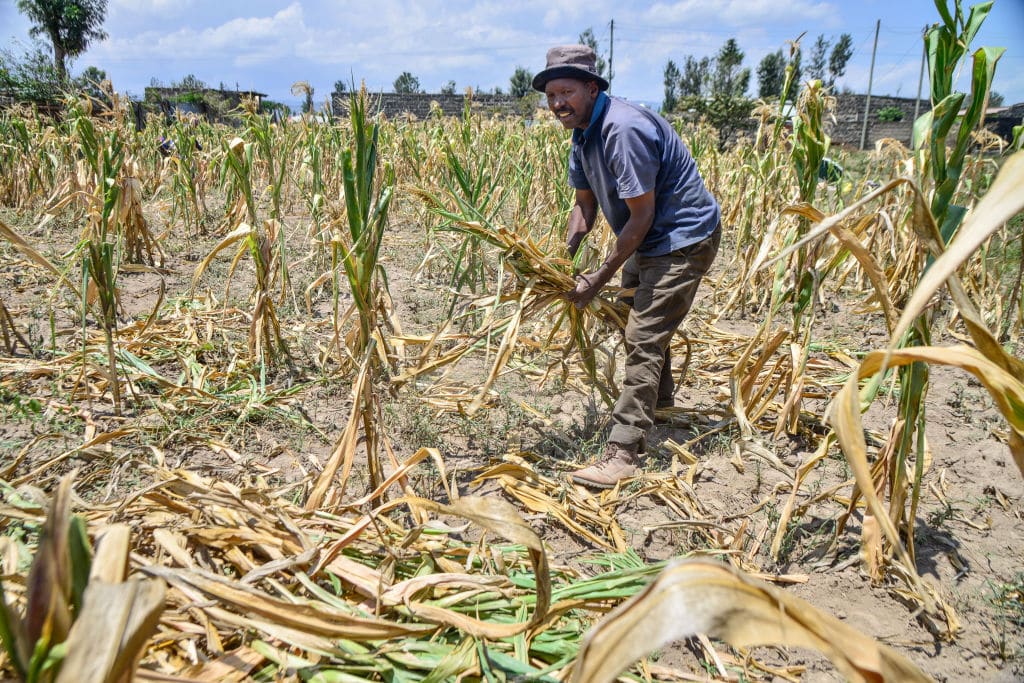In 1849, Jean-Baptiste wrote “plus ça change, plus c’est la même chose” – “The more things change, the more they stay the same.”
Apparently, turbulence doesn’t change reality but embeds it. I don’t agree when I see what’s happening in Africa today.
A continent long battered and bruised by exogenous factors, now battling climate, the new enemy.
Emissions are shamelessly borderless yet all pervading.
Rivers are running dry, crop patterns are changing and erosion is destroying livelihoods in Africa, despite our near-zero contribution to global warming. For an already beleaguered continent, the specter of ensuing hunger and famine could be a death knell.
Loading...
Adapting Africa’s food systems to climate change is imperative as a rise by 2 degrees celsius will profoundly affect African food security. And remember that almost $100 billion is spent on food
imports currently.
The import bill gets worse with wars and geopolitics that make prices soar making it unaffordable to many. Remarkably, more than 50% of food imports is by the Big 5: Morocco, Egypt, Algeria, South Africa, and Nigeria.
Large, well-endowed countries are the worst offenders. Worryingly, imports are basic necessities like grain, sugar, and other staples thus underlining the frightening fragility of food security.
Already one in five Africans go to bed hungry.
But this is a continent that is home to 60% of the world’s arable land. Data now shows that barring the Big 5 countries, the smaller ones are actually becoming net exporters of food.
Challenges exist of course: 30% to 40% is added to the cost of goods traded between African countries because of poor infrastructure. In Madagascar, the erstwhile road to the Alaotra-Mangoro region stunted agricultural productivity.
But now a new road has reduced travel time from eight hours to three.
Farmers are thrilled to see an increase in their margins as they reduce their losses.
Sadly, however, the agricultural value per farmworker in sub- Saharan Africa is still only $1,526 while in the United States, it exceeds $100,000. Heartwarming stories of resilience, adaptation and innovation exist, and it means this will improve.
Panuka Farms in Zambia modernized its cold storage and switched to greenhouse cultivation. This reduced food losses and climate-proofed production.
They now supply high-value vegetables such as English cucumber and replaced imported fresh produce to local retailers. New jobs were created as recent graduates now manage the farm.
In Lesotho, Happy C&J Village Farm added a borehole and drip irrigation to directly water individual plants rather than casting spray over a large area. The process conserves soil nutrients and minimizes
water waste.
Plastic tunneling protects lettuce, cabbage, tomato, and potato from hail. Thus, crops are grown throughout the year despite the increases in climate change leading to hailstorms and chilly weather.
Scaling up climate-smart practices, strengthening research and seed systems, support from agro-meteorological studies is in vogue for better crop management.
A moot point, however, is how agricultural subsidies in developed countries and intra-Africa tax on food products still unfortunately affect African production.
A population of a billion-plus, forecasted to be two billion, will, therefore, not sit idle. Mouths to feed and poverty will be fertile land for social unrest and untold human suffering otherwise.
Technology is crucial and transference of global knowhow an imperative. Market integration through improved intra-Africa infrastructure, regional cooperation and policy level-support are gradually forthcoming.
Institutions like the Africa Finance Corporation are at the forefront of initiating, developing, and investing in local value-addbased industries, and provide financing and logistics support to enhance export earnings and employment.
Necessity is the mother of all invention.
The African continent is not a basket case. Countless crises, conflicts and catastrophes have been encountered and managed on the continent. We are tough when the going gets tough.
When the world writes us off, we typically rise and survive.
Food self-sufficiency is a paramount condition to growth. It will be our biggest export as well. Let’s make our own granary and then for the world.
We owe it to all humanity
Loading...
